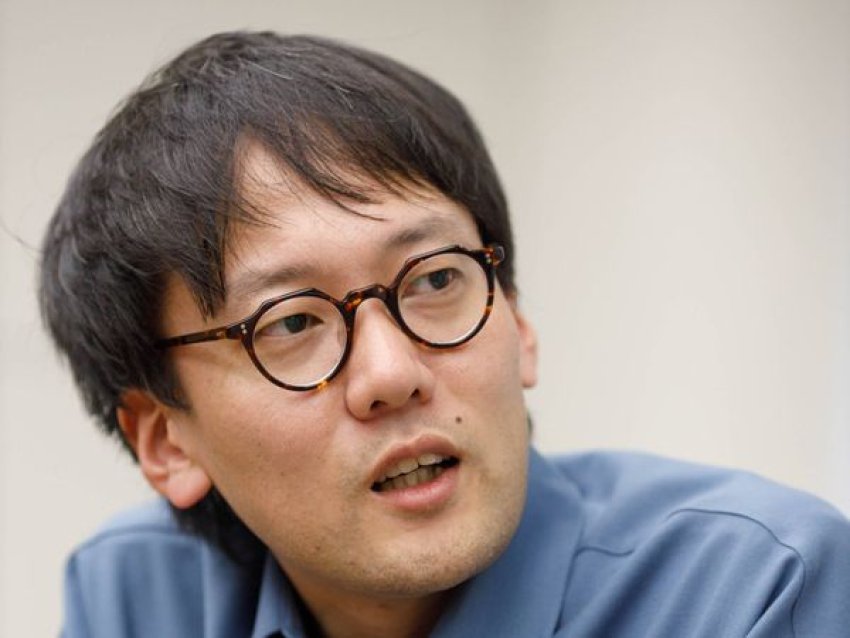
According to Japanese Marxist writer and academic Kohei Saito, the keynote speaker at the Ecosocialism Conference 2023 in Naarm/Melbourne over July 1-2, there are five important reasons why we need to move beyond capitalism to deal with the ecological and social crises besetting the world today.
First, capitalism (even an imagined one running on 100% renewable energy) will continue to expand production, endlessly trying to maximise profits.
The entire economy will remain distorted in favour of producing and distributing whatever commodities can make the owners of capital the biggest profits and pursuing infinite and sustainable growth.
“Products that are not essential for social reproduction or that are destructive of humans and the environment — for example, SUVs, fast fashion and industrial meat — are mass produced, as long as they sell well,” Saito explains in his book, Marx in the Anthropocene.
“At the same time, goods and services that do not make a profit are under-produced, no matter how essential they are.”
Only a new social system that breaks from the pursuit of profit can be freed from the constant pressure of infinite economic growth and reallocate resources to sectors that are desperately under-developed, even in some of the wealthiest countries.
For instance, we can see that even in wealthy Australia more resources are urgently needed to provide truly affordable and better housing, hospitals, quality and free education, public transportation and arts and culture.
Much essential work cannot be fully automated, but remains labour intensive, Saito said and, consequently, the capitalist system treats these as “unproductive” compared with other industrial sectors that have become more and more capital intensive through mechanisation.
So, the more society shifts towards really essential work, the slower the entire economy is likely to become.
Secondly, an alternative system that can be recognised by the majority of people as truly liberating needs to radically shorten the work week, not just to share the work around equitably but also to liberate human creativity, build social solidarity and enable true democratic engagement.
Society has gone through decades of rapid technological change in history yet, as Saito explains, “no matter how much capitalism develops productive forces, work hours did not decline during the 20th and 21st centuries ... On the contrary, the increasing number of precarious and low-paid jobs compels people to work longer hours”.
More are forced to do “bullshit jobs”, that is, jobs that even workers themselves know are meaningless for society if not destructive.
“Well-being can even improve because spending a large part of one’s life in meaningless jobs is harmful for mental health and these jobs also create meaningless products such as excessive advertisements, intimidation lawsuits and high-frequency trading,” Saito notes.
This kind of meaningless labour consumes a lot of energy and resources, as well as the support of care workers, and the elimination of bullshit jobs would dramatically reduce environmental impacts.
Third, an ecosocialist society would not only mean a shorter work week but it would make the content of the work we do more attractive and fulfilling. This could happen in part by breaking down the alienating divisions of labour imposed by the capitalist profit drive. The separation of mental and physical labour can be broken down and workers given back more control over their own labour.
Fourth, a system that is no longer based on the race and competition for profits will also be a slower economy.
Degrowth proponents have argued that decarbonisation simply cannot be accomplished fast enough to reach zero emissions in time to stay under 1.5° or 2°C, if high-income nations continue to grow at their usual rate of around 3% per year.
Climate is not the only issue, as the pursuit of unlimited growth is also driving the species extinction, waste and pollution and resource depletion.
An ecologically sustainable society would need to have a “steady-state economy”.
Fifth, only by liberating the majority from the “despotism of capital” can we gain the freedom to make choices about what we produce collectively and how we do it. Understanding what needs to be done for the sake of social justice and ecological sustainability, but having the power to democratically decide our collective course, requires a radical expansion of democracy into the workplaces and local communities, well beyond the narrow bounds of deeply corrupted parliaments.
The need for system change is urgent, Saito argues.
“As far as the logic of capital’s accumulation is being estranged from human life and the sustainability of the ecosystem, the capitalist system might continue to exist, even if all the planetary boundaries are exceeded, but many parts of the earth will be unsuitable for civilisation.”
In other words, capitalism will keep pursuing profit, capital accumulation and destructive economic growth for a long time yet, and even to the point of imperiling the planet’s ability to sustain human and other life, unless it is overthrown.
[Book here for the Ecosocialism 2023 in Naarm/Melbourne over July 1-2.]